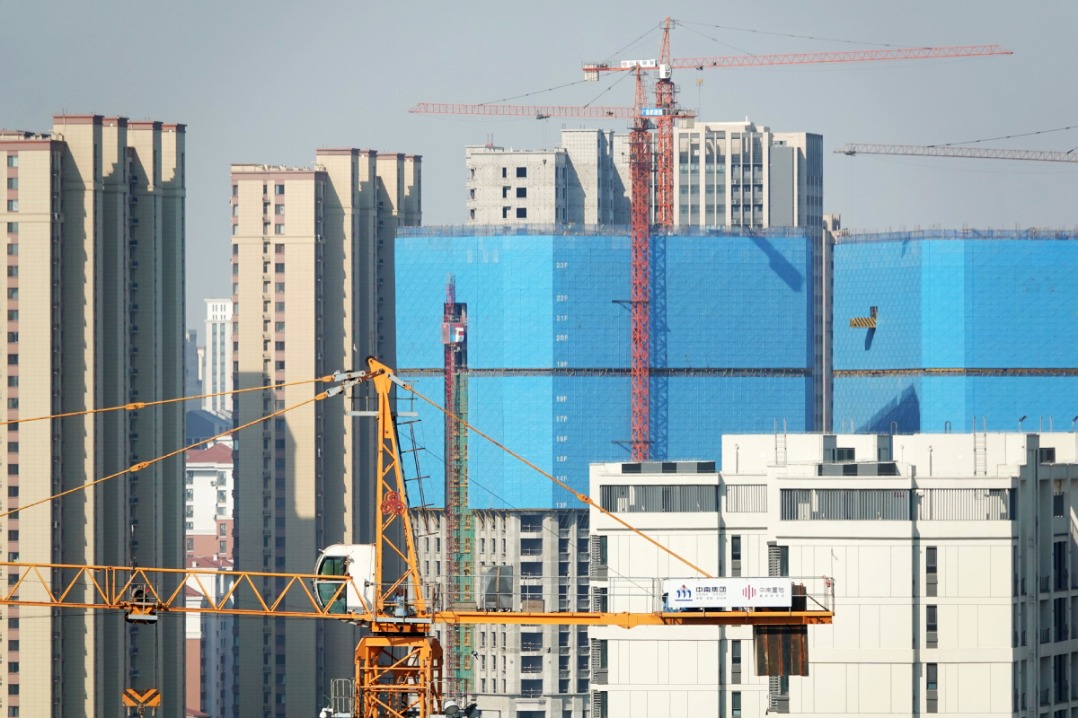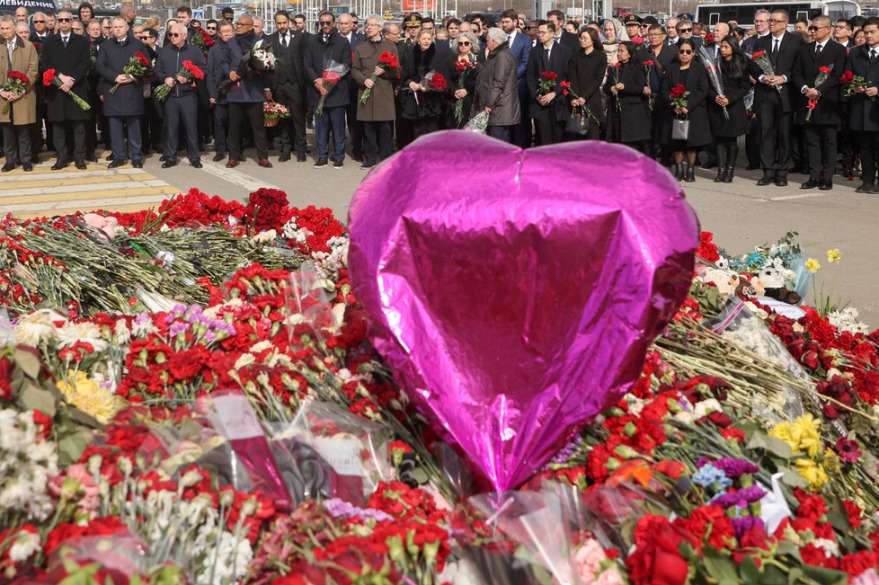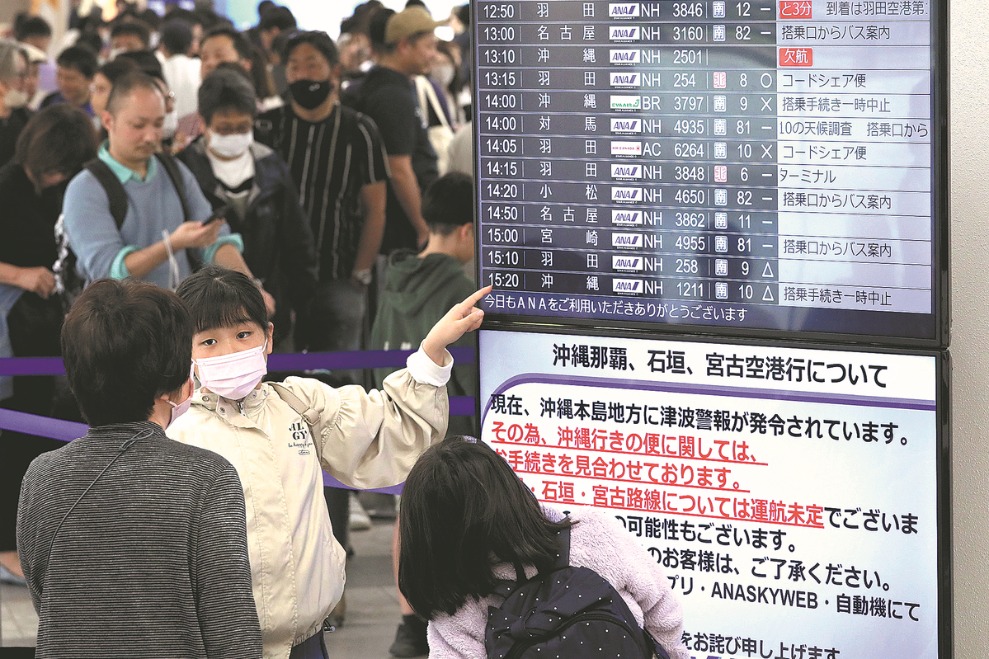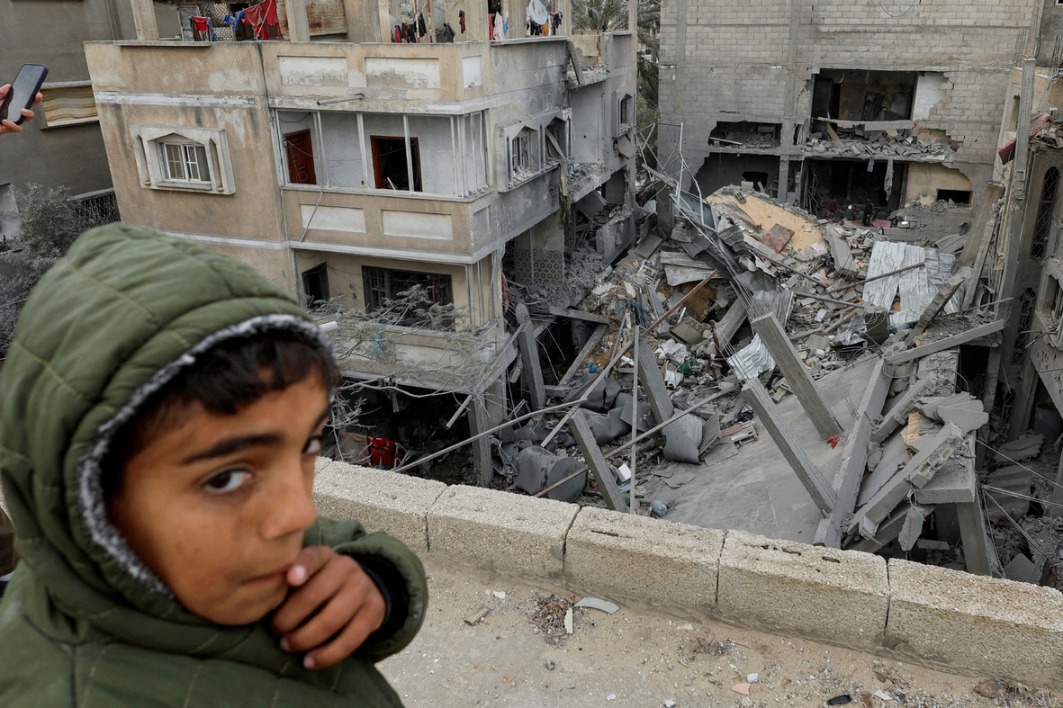NYC to forcibly hospitalize some mentally ill
By MINLU ZHANG in New York | chinadaily.com.cn | Updated: 2022-12-01 12:39
Following a string of high-profile subway attacks involving homeless people, New York City will remove more mentally ill people from its street and subway system, Mayor Eric Adams said, even if it means involuntarily hospitalizing some people who refuse care.
"These New Yorkers and hundreds of others like them are in urgent need of treatment, yet often refuse it when offered," Adams said in an address at City Hall on Tuesday, noting the pervasive problem of mental illness has long been out in the open. The effort clarifies a "gray area where policy, law and accountability have not been clear", he said.
Under the directive, outreach workers, city hospitals and first responders, including police, can now intervene when someone who is thought to be mentally ill to a point that it prevents them from "meeting their basic human needs, causing them to be a danger to themselves".
The effort would require involuntarily hospitalizing people who refuse treatment, even if they posed no risk of harm to others, arguing the city had a "moral obligation" to help them, Adams said.
"The common misunderstanding persists that we cannot provide involuntary assistance unless the person is violent," the mayor said. "Going forward, we will make every effort to assist those who are suffering from mental illness."
Existing state laws generally limit the ability of authorities to force someone into treatment unless their behavior poses a threat of "serious harm" to themselves or others.
But Adams said it was a "myth" that the law required a person to be behaving in an "outrageously dangerous" or suicidal way before a police officer or medical worker could act.
As part of its initiative, the city is developing a phone line that would allow police officers to chat with a professional "to get an expert opinion on what options may be available".
The Legal Aid Society, along with several community-based defender services, said the mayor was correct in noting "decades of dysfunction" in mental health care. They argued state lawmakers "must no longer ‘punt’" to address the crisis and approve legislation that would offer treatment, not jail, for people with mental health issues.
At the same time, the mayor’s announcement faced immediate criticism from some civil rights groups and advocates for the homeless.
"The mayor is playing fast and loose with the legal rights of New Yorkers and is not dedicating the resources necessary to address the mental health crises that affect our communities," Donna Lieberman, executive director of the New York Civil Liberties Union, said in a statement.
"Forcing people into treatment is a failed strategy for connecting people to long-term treatment and care," she said.
In June, the City Council approved a $101 billion fiscal year budget that included $2.4 billion for homeless services.
The Coalition for the Homeless also condemned the mayor’s plan, saying the city should focus on expanding access to voluntary psychiatric treatment.
"Mayor Adams continues to get it wrong when it comes to his reliance on ineffective surveillance, policing, and involuntary transport and treatment of people with mental illness," Jacquelyn Simone, the coalition’s executive director, said in a statement.
Studies show that the large majority of homeless in New York City are people living with mental illness or other severe health problems, the Coalition for the Homeless said.
About 3,400 people were living in streets and subways in January, according to a city survey, but advocates for homeless people say the numbers are unreliable.
Felony crimes have surged on the subway system by 40 percent so far this year with 1,917 incidents, up from 1,367 during the same period last year, according to New York Police Department statistics released on Sunday.
"When you do an analysis of the subway crimes, you are seeing that it’s being driven by people with mental health issues," Adams said last month.
In February, Adams and New York Governor Kathy Hochul unveiled a joint initiative to combat crime and address homelessness in the subway system that will expand response teams of health, police and community officials across the city.
A month later, Adams announced his plan to clear encampments where homeless people lived, a move that drew criticism from advocates who said the city was doing little to help those it had displaced.
Other large US cities are also grappling with homelessness, especially when it involves mental illness.
California Governor Gavin Newsom recently signed a law that could force some homeless people with disorders like schizophrenia into treatment.
minluzhang@chinadailyusa.com
























